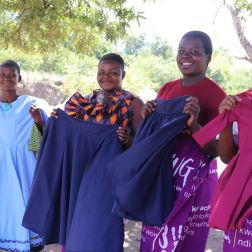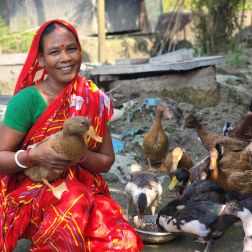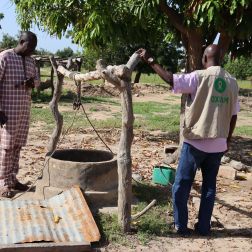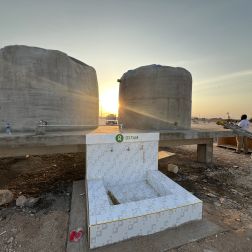- 5 mins read time
- Published: 19th June 2020
World Refugee Day: Voices of Women in the Midst of Conflicts
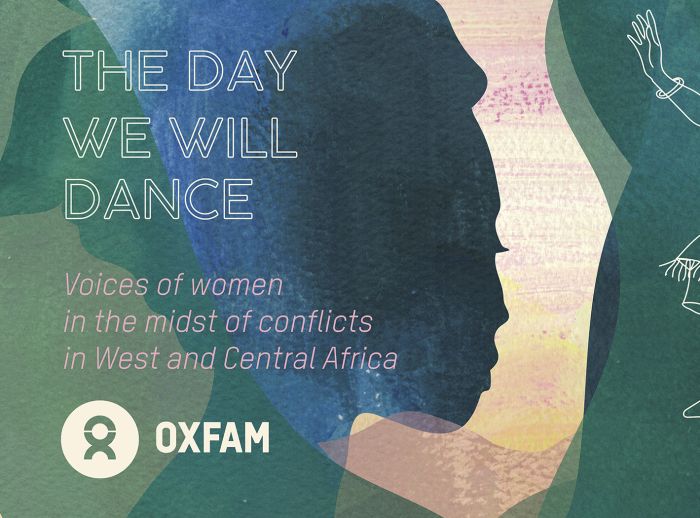
The music has stopped in the heart of the desert, the savannahs, and forests of the Sahel and the Central African Republic - taking with it the joy of better days. Fear has spread across the region, and people are facing it on two fronts: firstly, where armed groups devastate villages, driving more than five million people to flee their homes. Secondly, the rise of COVID-19 is creating additional fear and uncertainty amongst communities.
And for the majority of displaced women, their dance partners have also disappeared. Many men of working age have been killed by armed groups, disappeared or have left in search of a better future. In Burkina Faso, women and children represented 84 per cent of the displaced population. Women find themselves in extremely precarious situations, struggling for their survival and for those depending on them. Many bear the scars – visible and invisible - of acts of violence. In the Central African Republic, a woman is victim of sexual and gender-based violence almost every hour.
These Sahelian and Central African women are hundreds of thousands, survivors and heroes - waiting for music to resume in their lives. Whilst they do not sing, they still have their stories, and hope, to imagine another future.
A team of female humanitarian workers with Oxfam collected the following stories. They are accompanied by illustrations made by the artist Sophie Le Hire, who has lived in Senegal for four years and who, in her artistic approach, proudly carries the voice of women, whom she considers as "giants". By juxtaposing two styles, she illustrates the reality of the present and the dream for the future of these women
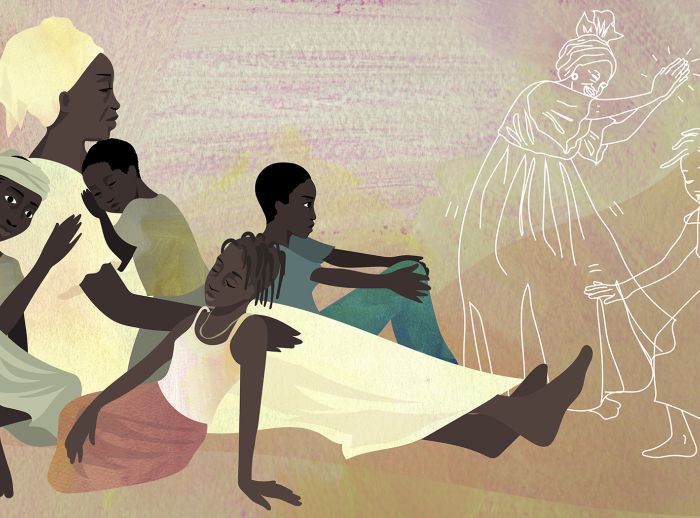
Victorine*, Burkina Faso
“The day I hear that this disease is over, we will dance. The shootings, we were able to flee. But a disease that the wind can bring is very hard.”
My name is Victorine. I come from the Center-North of Burkina, from the village of Dablo. Before, I used to make a traditional millet beer as part of a women's association. It allowed me to support my whole family. I have been the head of my large family since the death of my husband.
The first time that gunmen attacked my village, I lost two of my brothers and my nephew. The second time, I was forced to flee like others had done before me. I left with only the clothes that I was wearing; today I am left with nothing.
We are hosted, like so many others, by a local family. We did not know our host before we arrived. He is our benefactor; without him, I don’t know what we would have done. There’s a huge lack of food; I can't eat every day, and without help I would not make it.
We have been told about coronavirus. It doubled our fear. You know, we fled because of the shootings and now we have more problems. When we arrived here [in Kaya], things seemed to have improved. We were able to go out to find food. Now, with a virus added to the mix? It's a double fear. Can we deny that death is waiting for us now?
We can no longer gather for food distributions. We’re asked to wait for a phone call, but this is very slow. I’ve started to collect gravel, and I sell the heaps of gravel in order to feed my family. My children count on me.
The most difficult thing here is water – we urgently need it. When I get 10 cans of water, they don’t last the day; it's hot, we have to wash, drink and clean. Water is our number one need.
If the disease ends and the attacks end, there will be peace. From childhood, our parents have always taught us that if there is agreement between a man and his wife, they make blessed children. As a woman, I teach my daughters-in-law, my children, my grandchildren, so that they cultivate peace and social cohesion. I would have liked to have been an outreach worker. I would go around to educate young people, and women on the importance of peace.
In the future, I see myself surrounded by my children. They will have succeeded in school, they will take me on trips to visit other countries, and I will breathe the air of peace. My children are my hope because they are the source of my life. And with them I will be happy. They say that a good child is everyone's child, so it all starts with education.
I ask the authorities to find a cure for the disease because we are already bearing the brunt of our other ‘disease’: insecurity.
Interview by Syntyche Ouedraogo, Oxfam in Burkina Faso.
*Name has been changed to protect identity
Oxfam’s response
In the Sahel and the Central African Republic, Oxfam provides humanitarian aid and carries out advocacy actions for communities affected by large-scale humanitarian crises. Women and girls are the most exposed in crisis and it is fundamental that their specific needs and their protection are at the heart of humanitarian responses. Women also play a major role in developing social cohesion and peacebuilding.
Oxfam and its local partners provide humanitarian aid to more than 400,000 internally displaced people (IDPs) and host communities in the region, in terms of food aid, access to water, hygiene and sanitation and to protect the most vulnerable, especially women and girls. Oxfam also work alongside communities in conflict transformation programs to foster cross-border dialogues and the inclusion of women and young people in peacebuilding processes.
Since the arrival of the COVID-19, Oxfam has adapted its programs to protect the poorest and most vulnerable against this new threat. Oxfam also distribute hygiene kits to schools and health professionals and take action to ensure clean and safe water continues to flow.
